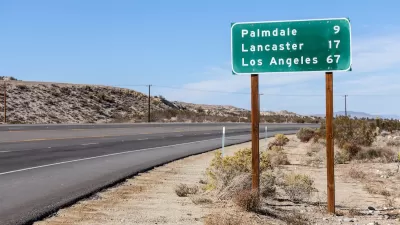Governments are mobilizing resources to address the impacts of longer and more intense heat waves on public health and infrastructure.

In a piece for Pew Trusts, Kristiane Huber outlines state and federal efforts to prepare for extreme heat and protect residents from its most severe impacts.
As Huber points out, “The problem is likely to get worse, as the National Oceanic and Atmospheric Administration (NOAA) predicts there is a 55% chance that 2024 will be hotter than 2023—the hottest year since global records began in 1850.”
At the state level, New Jersey, New York, North Carolina, Arizona, and others have issued action plans and toolkits to guide local governments and explore mitigation strategies. Some cities have also created offices dedicated to heat mitigation.
For its part, the federal government launched the heat.gov website, which offers resources and tools for communities, and “The U.S. Centers for Disease Control and Prevention (CDC) released a new Heat and Health Index, a national tool intended to identify the places most likely to experience negative heat-related health impacts and to help communities prepare for a hotter future.”
Huber concludes, “The concerted effort across federal and state governments to raise awareness, develop strategies, and invest in near- and long-term solutions in response to extreme heat represents a significant step in preparing communities and ecosystems for the perils of a warmer climate.” However, more resources are needed to ensure these efforts reach the communities most at risk.
FULL STORY: The Era of Extreme Heat Is Here: Federal and State Governments Roll Out Strategies to Cope

Planetizen Federal Action Tracker
A weekly monitor of how Trump’s orders and actions are impacting planners and planning in America.

Map: Where Senate Republicans Want to Sell Your Public Lands
For public land advocates, the Senate Republicans’ proposal to sell millions of acres of public land in the West is “the biggest fight of their careers.”

Restaurant Patios Were a Pandemic Win — Why Were They so Hard to Keep?
Social distancing requirements and changes in travel patterns prompted cities to pilot new uses for street and sidewalk space. Then it got complicated.

Platform Pilsner: Vancouver Transit Agency Releases... a Beer?
TransLink will receive a portion of every sale of the four-pack.

Toronto Weighs Cheaper Transit, Parking Hikes for Major Events
Special event rates would take effect during large festivals, sports games and concerts to ‘discourage driving, manage congestion and free up space for transit.”

Berlin to Consider Car-Free Zone Larger Than Manhattan
The area bound by the 22-mile Ringbahn would still allow 12 uses of a private automobile per year per person, and several other exemptions.
Urban Design for Planners 1: Software Tools
This six-course series explores essential urban design concepts using open source software and equips planners with the tools they need to participate fully in the urban design process.
Planning for Universal Design
Learn the tools for implementing Universal Design in planning regulations.
Heyer Gruel & Associates PA
JM Goldson LLC
Custer County Colorado
City of Camden Redevelopment Agency
City of Astoria
Transportation Research & Education Center (TREC) at Portland State University
Camden Redevelopment Agency
City of Claremont
Municipality of Princeton (NJ)





























